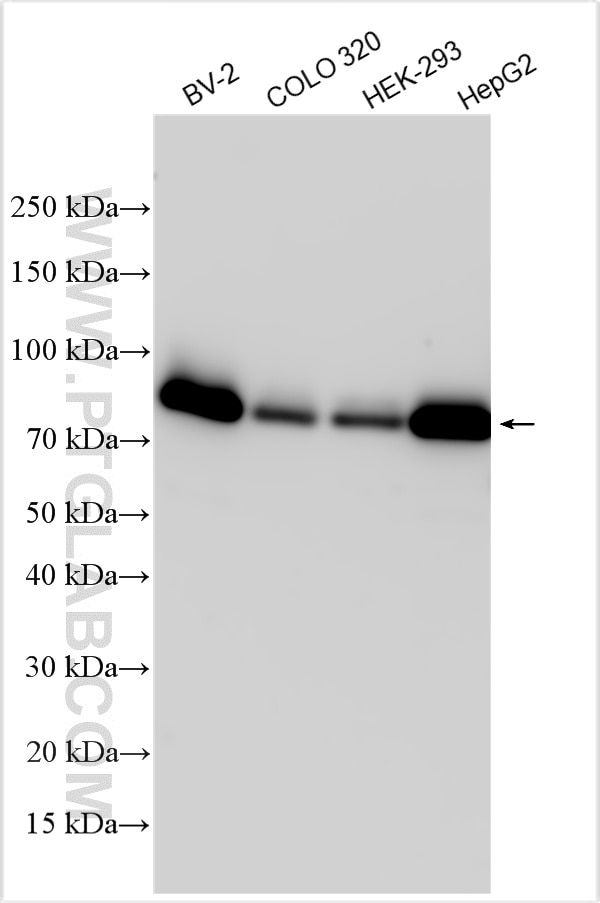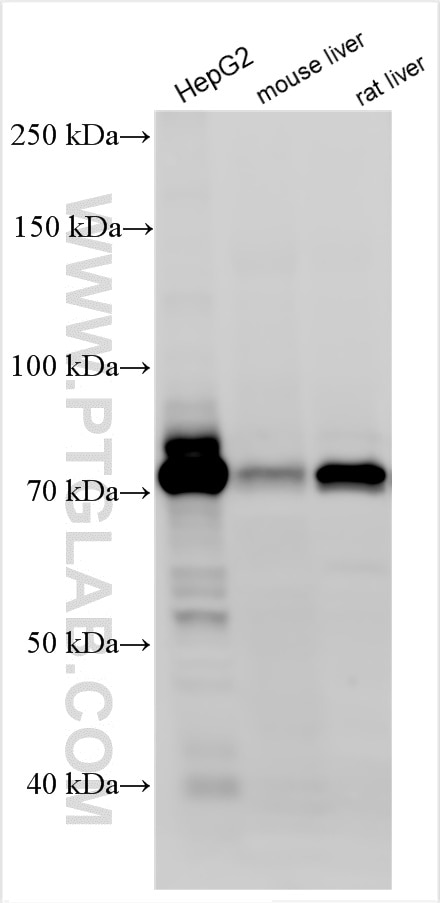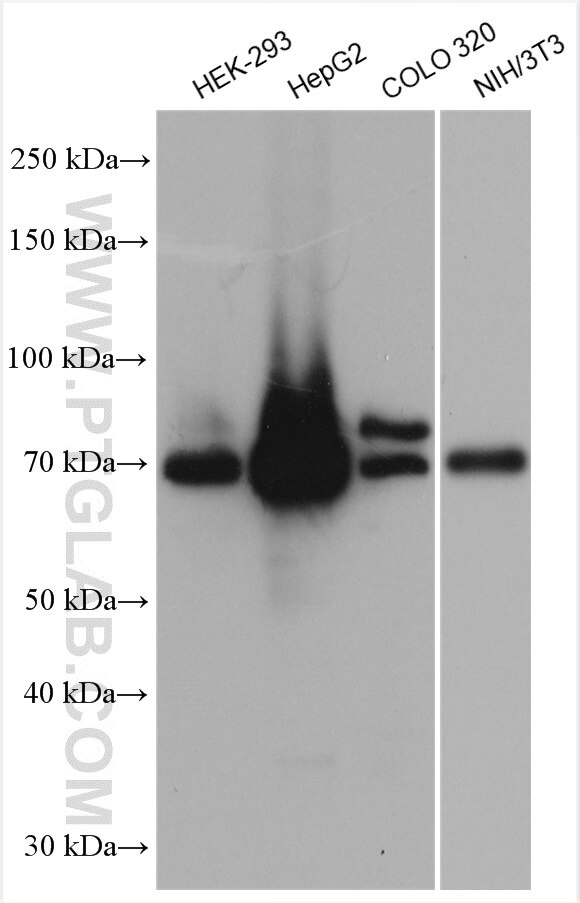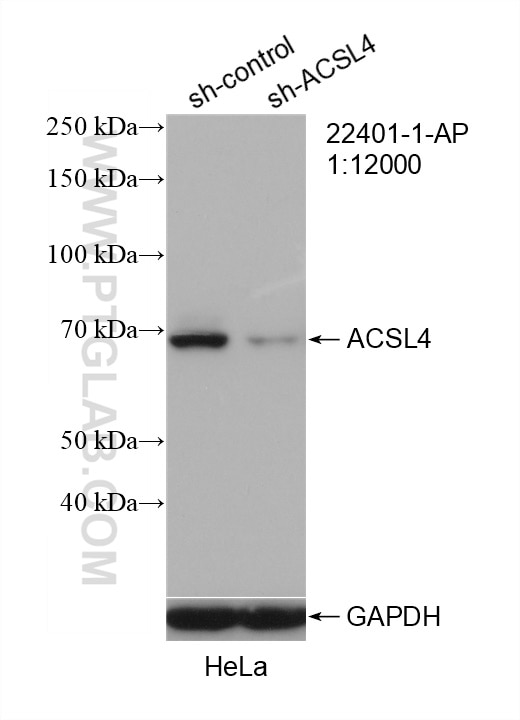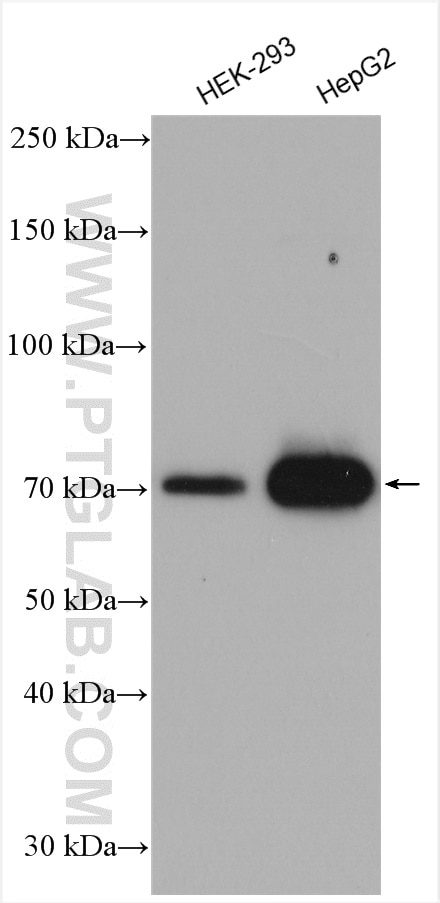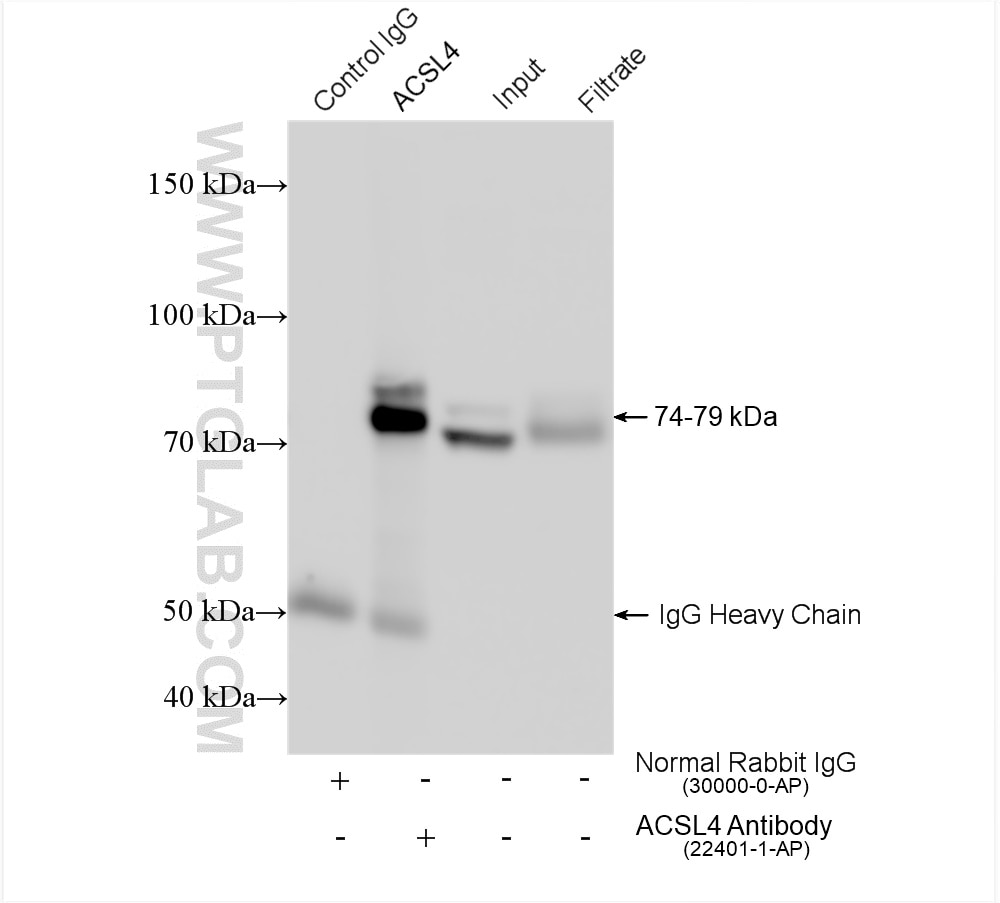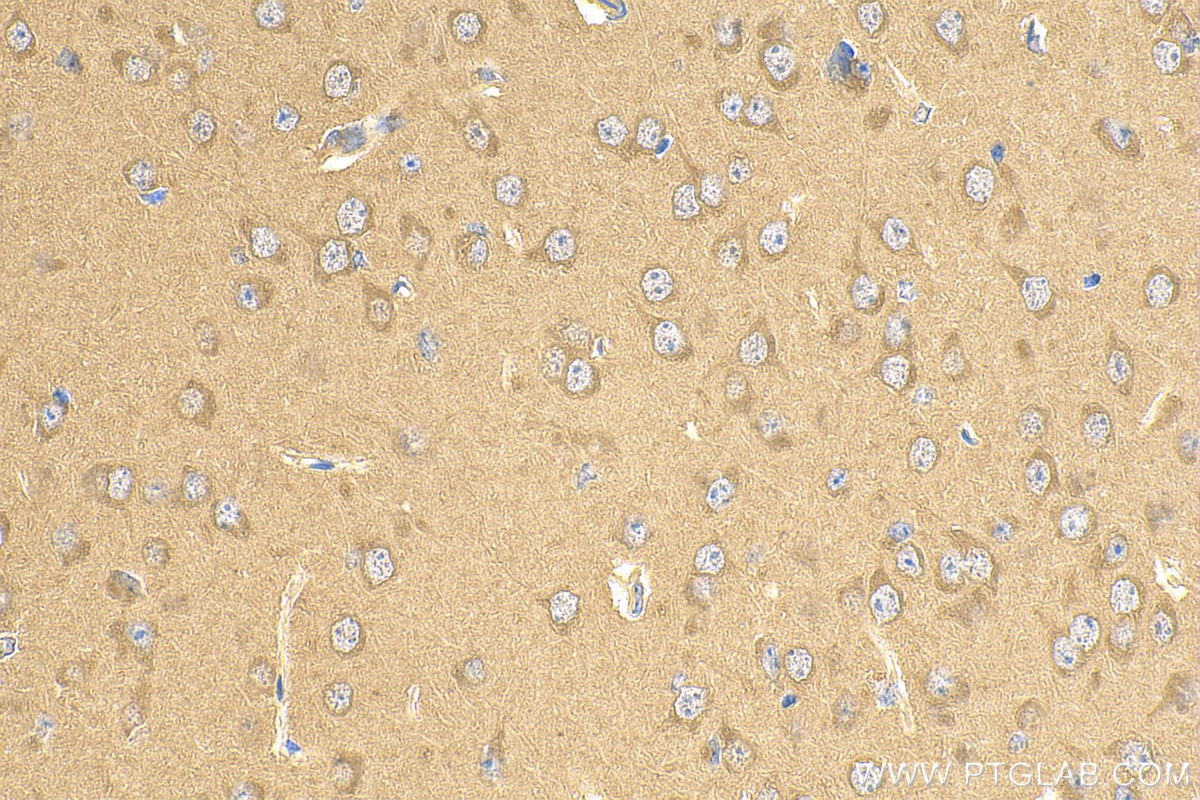Tested Applications
| Positive WB detected in | BV-2 cells, HEK-293 cells, HeLa cells, HepG2 cells, COLO 320 cells, NIH/3T3 cells |
| Positive IP detected in | HEK-293 cells |
| Positive IHC detected in | mouse brain tissue Note: suggested antigen retrieval with TE buffer pH 9.0; (*) Alternatively, antigen retrieval may be performed with citrate buffer pH 6.0 |
Recommended dilution
| Application | Dilution |
|---|---|
| Western Blot (WB) | WB : 1:5000-1:50000 |
| Immunoprecipitation (IP) | IP : 0.5-4.0 ug for 1.0-3.0 mg of total protein lysate |
| Immunohistochemistry (IHC) | IHC : 1:50-1:500 |
| It is recommended that this reagent should be titrated in each testing system to obtain optimal results. | |
| Sample-dependent, Check data in validation data gallery. | |
Published Applications
| KD/KO | See 8 publications below |
| WB | See 201 publications below |
| IHC | See 41 publications below |
| IF | See 23 publications below |
| IP | See 4 publications below |
| CoIP | See 3 publications below |
Product Information
22401-1-AP targets ACSL4/FACL4 in WB, IHC, IF, IP, CoIP, ELISA applications and shows reactivity with human, mouse, rat samples.
| Tested Reactivity | human, mouse, rat |
| Cited Reactivity | human, mouse, rat, pig, duck |
| Host / Isotype | Rabbit / IgG |
| Class | Polyclonal |
| Type | Antibody |
| Immunogen | ACSL4/FACL4 fusion protein Ag18085 Predict reactive species |
| Full Name | acyl-CoA synthetase long-chain family member 4 |
| Calculated Molecular Weight | 711 aa, 79 kDa |
| Observed Molecular Weight | 79 kDa, 74 kDa |
| GenBank Accession Number | BC034959 |
| Gene Symbol | ACSL4 |
| Gene ID (NCBI) | 2182 |
| RRID | AB_2832995 |
| Conjugate | Unconjugated |
| Form | Liquid |
| Purification Method | Antigen affinity purification |
| UNIPROT ID | O60488 |
| Storage Buffer | PBS with 0.02% sodium azide and 50% glycerol , pH 7.3 |
| Storage Conditions | Store at -20°C. Stable for one year after shipment. Aliquoting is unnecessary for -20oC storage. 20ul sizes contain 0.1% BSA. |
Background Information
Acyl-CoA synthetase long-chain family member 4 (Acsl4), an important enzyme involved in lipid metabolism, participates in ferroptosis by converting free AA into arachidonoyl-CoA to generate lipid hydroperoxides. Recent studies revealed that ACSL4 is involved in biological responses including inflammation, steroidogenesis, cell death, female fertility, and cancer. Acsl4 has two isoforms: 79 kDa and 75 kDa. ACSL4 also can be detected in 70 kDa(PMID:35326233).
Protocols
| Product Specific Protocols | |
|---|---|
| WB protocol for ACSL4/FACL4 antibody 22401-1-AP | Download protocol |
| IHC protocol for ACSL4/FACL4 antibody 22401-1-AP | Download protocol |
| IP protocol for ACSL4/FACL4 antibody 22401-1-AP | Download protocol |
| Standard Protocols | |
|---|---|
| Click here to view our Standard Protocols |
Publications
| Species | Application | Title |
|---|---|---|
Cell Res Mitochondria-localized cGAS suppresses ferroptosis to promote cancer progression | ||
Nat Commun URI alleviates tyrosine kinase inhibitors-induced ferroptosis by reprogramming lipid metabolism in p53 wild-type liver cancers | ||
Adv Sci (Weinh) Development and Application of the CRISPR-dcas13d-eIF4G Translational Regulatory System to Inhibit Ferroptosis in Calcium Oxalate Crystal-Induced Kidney Injury | ||
Adv Sci (Weinh) Sirtuin1 Suppresses Calcium Oxalate Nephropathy via Inhibition of Renal Proximal Tubular Cell Ferroptosis Through PGC-1α-mediated Transcriptional Coactivation | ||
Mol Ther STING/ACSL4 axis-dependent ferroptosis and inflammation promote hypertension-associated chronic kidney disease |
